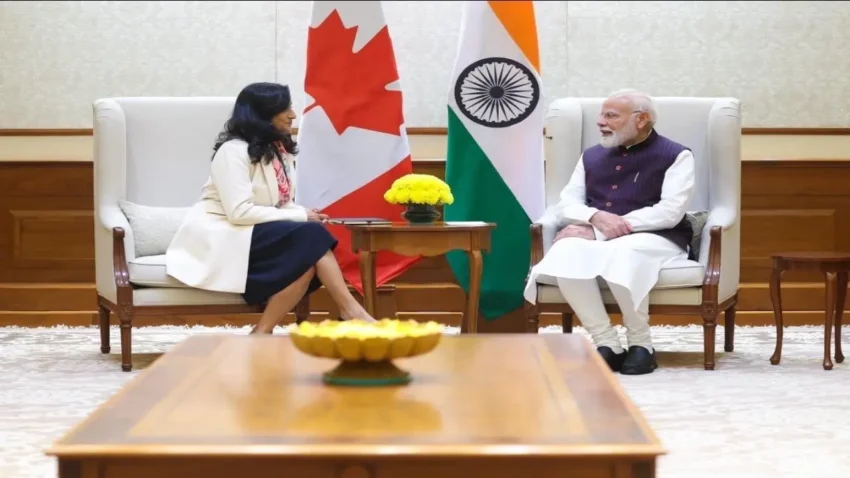Prime Minister Narendra Modi on Monday emphasised the need to strengthen India-Canada relations across key sectors, including trade, energy, technology, agriculture, and people-to-people linkages. This came during his meeting with Canadian Foreign Minister Anita Anand in New Delhi, news agency PTI reported.
According to an official statement, PM Modi recalled his “extremely productive” meeting with Canadian counterpart Mark Carney during his visit to Canada for the G7 Summit in June. He extended his warm wishes to Carney and expressed his anticipation for further engagements between the two countries.
Anand, who arrived in New Delhi on Sunday evening, held wide-ranging discussions aimed at deepening bilateral cooperation. Her three-nation tour also includes visits to China and Singapore, PTI reported.
India-Canada relations had suffered a setback in 2023 after then Prime Minister Justin Trudeau alleged a potential Indian link to the killing of Khalistan separatist Hardeep Singh Nijjar. However, ties have gradually improved since Mark Carney took office in April following his party’s electoral victory, with both sides signalling a reset in engagement.
The renewed momentum followed Modi and Carney’s meeting on the sidelines of the G7 Summit at Kananaskis in June, where both leaders agreed to revitalise dialogue mechanisms and explore new areas of collaboration.
External Affairs Minister S Jaishankar also held talks with Anand on Monday. During their discussions, both sides finalised an ambitious roadmap to expand cooperation in trade, investment, critical minerals, energy, and civil nuclear partnership.
“India-Canada bilateral relations have been steadily progressing in recent months. We are working to restore and reinvigorate the mechanisms necessary to advance our partnership,” Jaishankar said in his opening remarks.
He added that, as Prime Minister Modi observed during his meeting with Carney, India’s approach is to “move forward with a positive mindset.”
“When we look at Canada, we see a complementary economy, another open society, and shared values of diversity and pluralism. We believe that forms the basis for a close, sustainable and long-term cooperative framework,” Jaishankar said.
